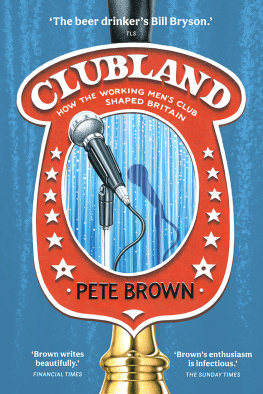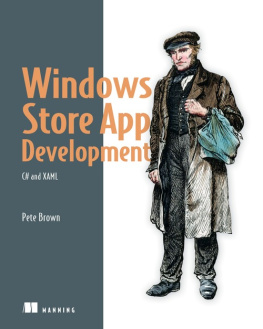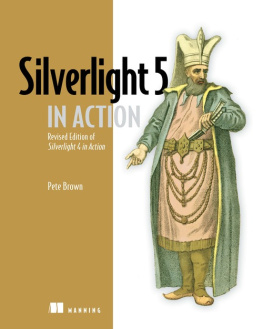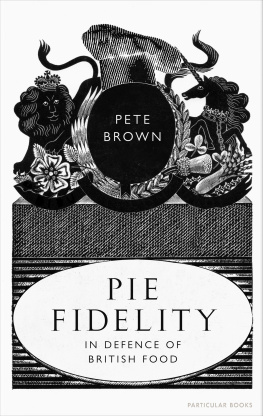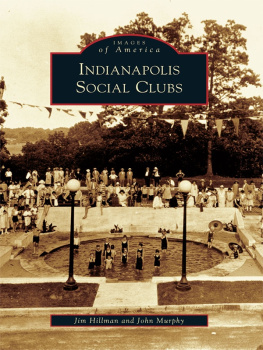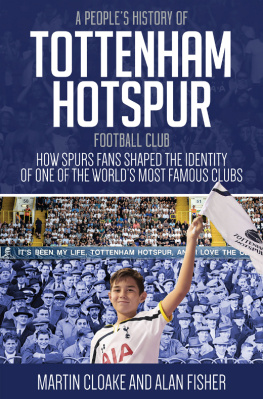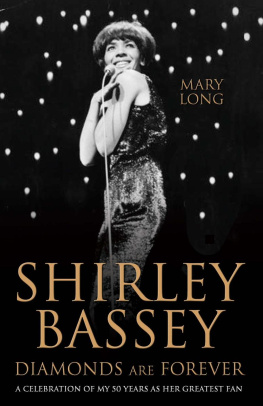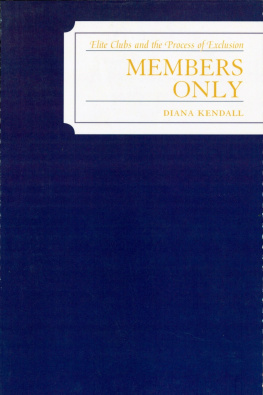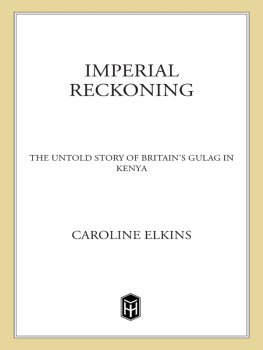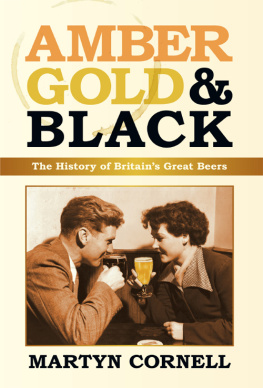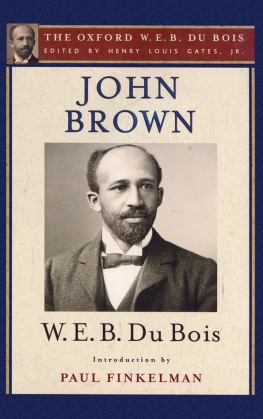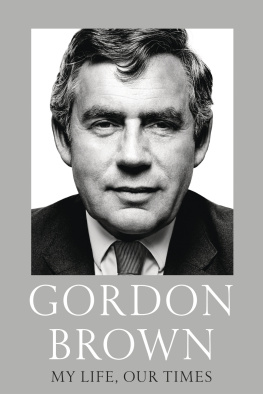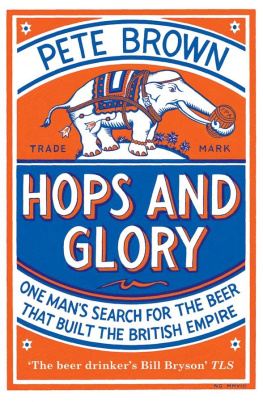HarperNorth
Windmill Green,
Mount Street,
Manchester, M2 3NX
A division of
HarperCollinsPublishers
1 London Bridge Street
London SE1 9GF
www.harpercollins.co.uk
HarperCollinsPublishers
1st Floor, Watermarque Building, Ringsend Road
Dublin 4, Ireland
First published by HarperNorth in 2022
FIRST EDITION
Copyright Pete Brown 2022
Cover design by Rob Pinney HarperCollinsPublishers Ltd 2022
Cover Illustration Neil Gower 2022
Pete Brown asserts the moral right to be identified as the author of this work
A catalogue record of this book is available from the British Library
All rights reserved under International and Pan-American Copyright Conventions. By payment of the required fees, you have been granted the nonexclusive, non-transferable right to access and read the text of this e-book on screen. No part of this text may be reproduced, transmitted, downloaded, decompiled, reverse engineered, or stored in or introduced into any information storage retrieval system, in any form or by any means, whether electronic or mechanical, now known or hereinafter invented, without the express written permission of HarperCollins e-books.
Find out about HarperCollins and the environment at
www.harpercollins.co.uk/green
Source ISBN: 9780008457549
Ebook Edition June 2022 ISBN: 9780008457556
Version: 2022-05-24
This ebook contains the following accessibility features which, if supported by your device, can be accessed via your ereader/accessibility settings:
- Change of font size and line height
- Change of background and font colours
- Change of font
- Change justification
- Text to speech
- Page numbers taken from the following print edition: ISBN 9780008457549
For Liz,
and for her membership of my local working mens club,
which is equal to my own.
There is no true civilization, no true and lasting prosperity, unless the condition of the mass of people steadily improves, not only in material comfort or in security from destitution, but in all that makes life valuable.
The 20th Annual Report of the Club and Institute Union, 1883
I toyed with the idea of playing Ravels Pavane pour une infante defunte but I couldnt remember if its a tune or a Latin prescription for piles.
Les Dawson
PART ONE
Staincross Working Mens Club, Barnsley
One of my earliest memories is of being held in someones arms, in a space that glowed.
I know the memory is authentic because its disjointed and incoherent, a bunch of sensory hollers from before I was old enough to link them together into a sequence that made narrative sense. It was mostly just colours and lights.
Thats why it stands out.
When I was little, an oil crisis and a miners strike combined to create power shortages and a three-day working week across Britain. I can just about remember winter nights when the black-and-white telly would snap off and the candles were lit.
For much of my childhood, the landscape was shades of black and grey, even when the lights were on. When I was born, in Barnsley, South Yorkshire, the town and its scattered satellite villages still owed their existence and modest prosperity to coal mining. We were promised they always would. At the bottom of our street squatted the muckstack, a charcoal mountain of slag clawed out of the ground on the way to the rich coal seams beneath. It greeted us when we opened the living room curtains each morning, like a negative of the photo of an alp. Above the muckstack, the Pennine sky was a grey shell that rarely cracked. Our houses were (it turned out later) built of beautiful golden sandstone, but the soot from our chimneys had long since blackened them, as black as the faces of the miners when they came to the surface at the end of each shift. Im conscious of the danger of laying this on too thick, but the main road that ran parallel to our street, connected to it umbilically by soot-blacked terraces, was actually called Blacker Road. This, then, was the stereotypical North, where, as The KLF reminded us years later, it was always grim.
And thats why Christmas blazed so brightly.
In places like Barnsley, the contrast between normality and Christmas was tuned so high, the colours bled. My proto-memory is of a large room in which every flocked wall, every inch of Artexed ceiling, is exploding with hanging decorations industrially cut from metallic paper. Technicolor tinsel drips from every corner and ledge. Perhaps there are fairy lights. Possibly suicidally it might be candles. But everywhere there is light, and every surface catches this light, refracts and multiplies it, until the air itself shines.
As a toddler, I have no concept of alcohol, no understanding of its power to liberate, no idea why we are here in this place. But I see it as a magical grotto that I never want to leave. (I might be embellishing now, but I think I bawl my head off when we eventually do). For the rest of my life, I will always scorn minimalist, supposedly tasteful, colour-coordinated Christmases, and regard any naked branch, wall or mirror in late December as an aesthetic and moral failing.
This wonderland transforms the people within it. Throughout my childhood, adults were stony-faced. Cracking a grin seemed like surrender, as if someone had breached their defences. When they spoke to each other they diverted their eyes to the sideboard or the mantelpiece. So to my infant eyes, the true miracle of the shining room is that now they are in it, these same people laugh. Faces that are usually lined and grey are now shiny and red. They lock eyes as they laugh. They are ostentatious in their generosity. The women are gorgeous in their long frocks, dangly earrings and blue eye shadow, and the men are open and warm, thawed out in the midst of the winter chill.
My childhood was not a happy one, and Christmas memories like these stand out as brief moments when everything was OK and everyone was bright and sparkling.
For a long time, I used to associate this first memory of what turned out to be Christmas with the pub. But as I grew older and began visiting the local pubs myself, I could never figure out which one it could have been. Obviously, the dcor would have changed over the decades, but even accounting for the difference in scale perceived by a tiny person in an adults arms and a gawky teenager, my magical glowing place had been much bigger than any of the boozers in our village, or even in the town centre. My dad has been dead for a long time now, and theres no reason why hed remember one random Christmas from the late sixties or early seventies even if he was still around to ask. But thinking back, my parents hardly ever went to the pub at all. My dad, on the rare occasions when he drank, was a clubman.
***
Words are powerful. When you look at who controls their meanings, you can see where the power in a society lies.
Take clubman, for example. Ask someone in the North what a clubman is, and theyll tell you its a bloke who tends to do their drinking in a club working mens club, social club, ex-servicemens club, Labour club, whatever rather than a pub. Ask an affluent, well-connected person in the South, and a clubman is a member of a gentlemens club.
Fine some words have different associations for different groups of people: Mecca is either a chain of bingo halls or the most holy city in Islam, depending on your point of view. But the

